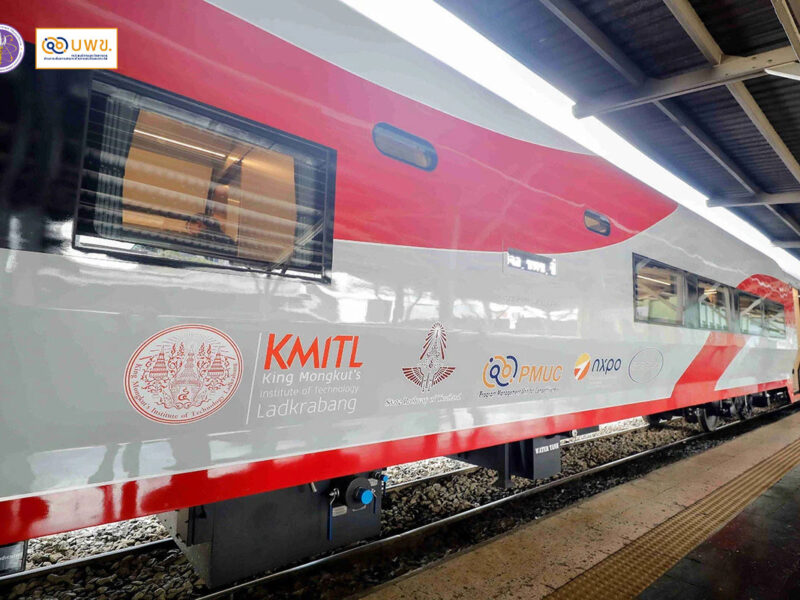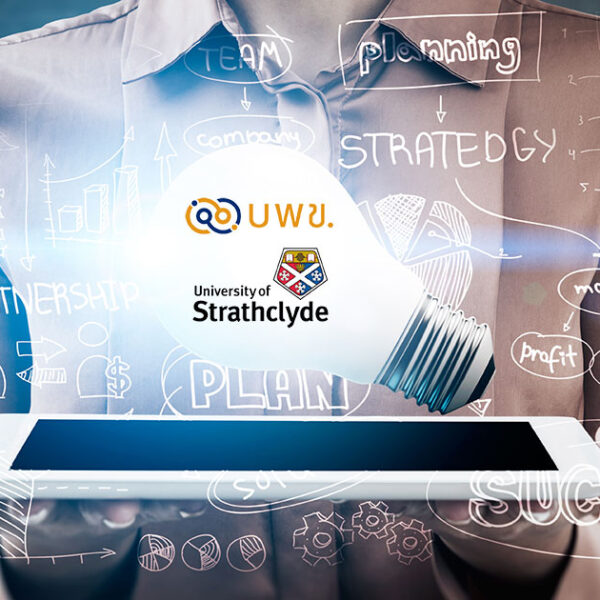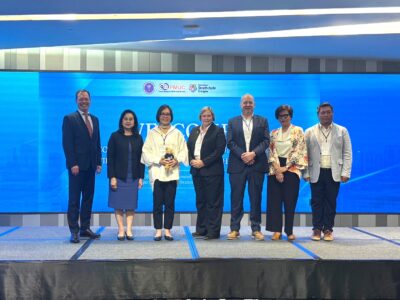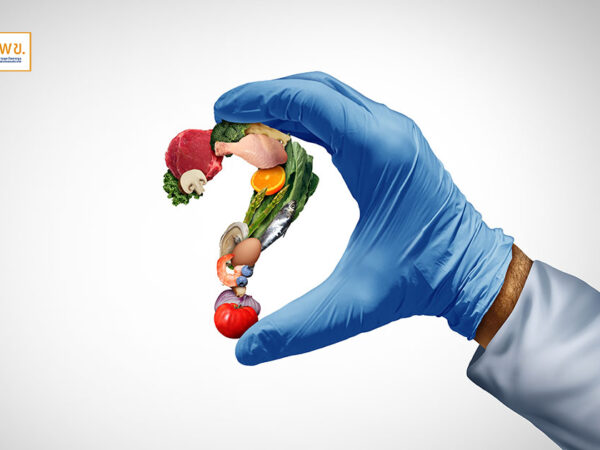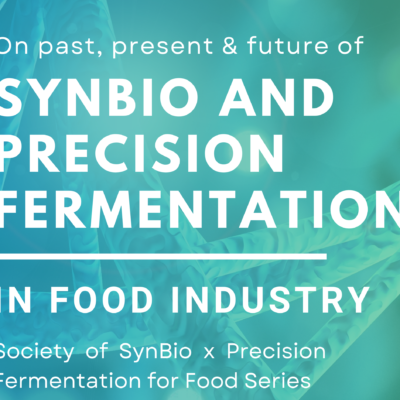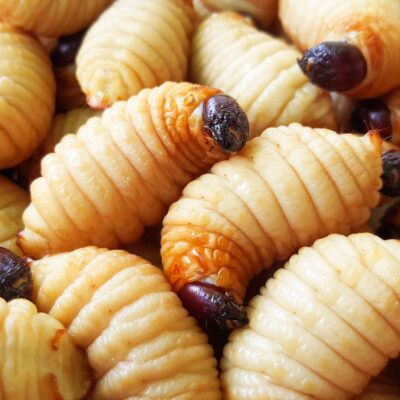PMUC – TSRI, TAT join effort with ATTA together with 8 tourism business associations to drive Thai tourism industry with tourism research, pushing towards a high-value economy focusing on sustainability and increased income for the country.

On October 12, the Program Management Unit for Competitiveness (PMUC) together with the Office of Science Promotion Research and Innovation (TSRI), Tourism Authority of Thailand (TAT), Thai Tourism Association (ATTA), Thai Travel Agents Association (TTAA), Domestic Tourism Association (ADT), Professional Tour Guide Association of Thailand (PGAT), Thai Transportation Operators Association (TTOA), International Conference Promotion Association (Thai) (TICA), Thailand-Japan Tourism Promotion Association (T-JTA), Thai Ecotourism Adventure Travel Association (TEATA), and the Thai Hotels Association (THA) have entered into a memorandum of understanding to develop and drive the Thai tourism industry through research on tourism and creative economy. The even took place at Sukosol Hotel, Bangkok. Vice Minister for Tourism and Sports presided over the opening ceremony.

All 12 organizations have agreed to cooperate to support the development of the Thai tourism industry with science, research and innovation, to further elevate the potential of the tourism industry throughout the value chain sustainably based on national resources. The initiative is done in accordance in with the Plan for Scientific Research and Innovation 2023-2027 (VID) in the area of Tourism and Creative Economy Development, and in line with the BCG economic system development (Bio-Circular-Green Economy) in tourism to be a high-value economy system. It is sustainable and increases the country’s income through joint effort and promotion according to the roles and missions of each agency by using available resources and mechanisms to provide research budgets that address the needs of the private sector in order to achieve research results that can be used in a tangible way and have a wider impact.
Mr. Napinthorn Srisanpang, Deputy Minister of Tourism and Sports, said that the Ministry of Tourism and Sports has set a policy to “turn Thailand into a new direction. for a better Thailand” in line with the government’s policy that “transform Thailand into progressive society to create sustainable value.” The government has placed much importance on the tourism sector, because the fastest turnaround for the country is in terms of tourism. And since we are already ready, the private sector is very ready. Whether it is the hotels, accommodation, various tourist attractions that have been restored, as well as various services, including roads leading to tourist attractions, trams, buses, which are all ready to open for service. In the post-COVID-19 era, we plan to push for the amendment of outdated laws to facilitate increasing tourism potential, and pushing income distribution to secondary cities, communities, both directly and indirectly and creating a balance for the number of tourists during the low season and the high season, reducing the dependence on income from foreign tourists as in the past. This along with improving environmental problems will help the country to achieve sustainable development.

Associate Professor Siree Chaiseri, Ph.D., director PMUC, reveals that PMUC is responsible for allocating research funds and creating innovations to increase the competitiveness of both the manufacturing and service sectors. One of the key service sectors is tourism services. We have a tourism and creative economy plan that is ready to raise the bar for high-value tourism, on the basis of natural and cultural heritage, health tourism as well as the creative economy to add economic value and increase income for the country. Emphasis is placed on integrative collaboration between academic departments and entrepreneurs. In this collaboration, PMUC has played a role in setting a research framework for tourism and creative economy, as well as the management of research funding to support experts, lecturers and coordinators in creating learning processes and other activities related to quality research development. It also drives the utilization of research results on tourism and the creative economy in various sectors involved throughout the value chain of the tourism industry. Moreover, PMUC agrees to operate jointly under the objectives and scope of cooperation according to this memorandum of cooperation.

Associate Professor Pattamawadi Phochanukul, director of TSRI, said that the organization, as a planner and administrator overseeing the science, research and innovation budgets, realized the importance of driving the country’s economy by using tourism as a tool, it has packed important plans under the Plan for Science, Research and Innovation Year 2023-2027. Tourism is an important milestone of strategic issue 1 that focuses on tourism and the creative economy research plan for a high-value economy to be more sustainable and increasing the country’s overall income.

Mr. Yuthasak Supasorn, Governor of the Tourism Authority of Thailand (TAT) said for driving Thai tourism through research on tourism and the creative economy is considered an important framework for cooperation. of agencies that are integrated together to set a research framework, with the TAT ready to support both in terms of marketing, personnel, and various tools to achieve tangible results according to the intentions of all parties who want to develop and drive the Thai tourism industry into a new dimension. This is considered a critical role in this era after the COVID-19 crisis, with TAT ready to take part in the success that will occur in the future.
Mr. Sisadiwat Cheewarattanaporn, President of the Thai Tourism Business Association, stated that Association of Thai Travel Agents or ATTA, as well as the Association of Thai Travel Agents, Domestic Tourism Business Association, Professional Tour Guide Association of Thailand, Thai Transportation Operators Association, International Convention Promotion Association (Thailand), Thai-Japan Tourism Promotion Association, Thai Ecotourism and Adventure Tourism Association, and the Thai Hotels Association, joined in signing the agreement. Today we are pleased to work with TSRI and PMUC to create research that focuses on the integration between academic departments and the entrepreneurial sector to revitalize the tourism industry after the COVID-19 epidemic which we together faced in the past two plus years. The aim is to enhance the competitiveness of private sector organizations in tourism to drive the country’s economy. And we believe that the entrepreneurial sector will gain academic knowledge from this collaboration to help further strengthen the Thai tourism industry for steady and sustainable growth.
At the event, there was an open forum on promoting the Thai tourism industry with research on tourism and creative economy, PMUC and TSRI, both involved in funding support for science, research and innovation initiatives, discussed about the success of building upon research results and expanding into many new dimensions, such as 1. The Charm of Thai Cuisine from Seven Rivers: Food and Culture Tourism, by Dr. Sanchai Kiatsongchai from Rajabhat University, Loei Province. 2. Historic train trip on the Lanna Modernization: Chiang Mai-Lamphun-Lampang route, by Asst. Prof. Natthanan Thitiyapramote, Ph.D., Rajabhat University, Lampang Province. 3. Aromatherapy: Lanna Style Spa: Upgrading values to international standards, by Prof. Areewan Klangklin, Ph.D., Panyapiwat Institute of Management 4. Sharing experiences with network collaboration for the goal of net-zero carbon tourism, by Mr. Nipatpong Chuanchuen, Vice President of the Ecotourism and Adventure Tourism Association (TEATA) 5. To build and expand on the value of the Thai tourism economy by Mr. Somyot Pathan, President of Old Phuket Town Community Enterprise and 6. Success factors in driving the Thai tourism industry with tourism and creative economy research, by Dr. Adit Chairattananon, Secretary General of the Thai Tourism Business Association.
Asst. Prof. Supawadee Bodhiyarat, Ph.D., senior expert TSRI and chairman of the subcommittee on Tourism and Creative Economy Program, PMUC, who hosted the discussion, presented with confidence the result of the research work that the TSRI and the PMUC have conducted in cooperation with network partners and relevant local communities all working together on the high-value tourism plan. The plan encompasses tourism based on natural heritage, eco-friendly, net-zero, and health promotion concepts. In addition, the creative economy program can support entrepreneurial management to upgrade and drive the tourism and service industry from research-based towards a high-value economy, while promoting sustainability and increasing income opportunities according, in line with the national goal according to the TSRI policy that focuses on driving the regions across Thailand with science, research and innovation.






















